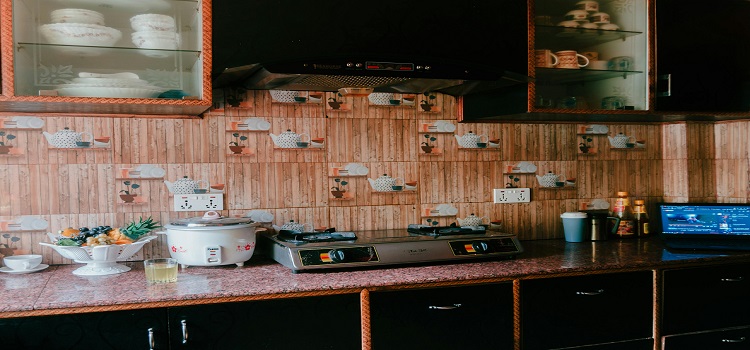As an Amazon Associate I earn from qualifying purchases.
Rice Cooker Left on Warm Overnight: Risks, Precautions, and Solutions
Introduction: Leaving a rice cooker on the warm setting overnight can raise concerns about food safety and appliance functionality. In this guide, we’ll explore the potential risks associated with leaving a rice cooker on warm overnight, precautions to mitigate those risks, and steps to ensure food safety and appliance longevity.
Uses of Rice Cookers: Rice cookers are versatile kitchen appliances commonly used for:
- Cooking various types of rice: white, brown, sushi, etc.
- Steaming vegetables, seafood, and dumplings.
- Keeping cooked rice warm for extended periods.

Benefits of Using a Rice Cooker:
- Convenience: Rice cookers simplify the process of cooking rice and other foods, requiring minimal monitoring.
- Consistency: With automatic temperature control, rice cookers produce consistently cooked rice each time.
- Time-Saving: Rice cookers allow for hands-free cooking, freeing up time for other kitchen tasks or activities.
- Versatility: Many modern rice cookers come with additional features such as steaming trays and programmable settings, enhancing their utility in the kitchen.
Risks of Leaving a Rice Cooker on Warm Overnight:
- Bacterial Growth: Extended exposure to warm temperatures can create conditions conducive to bacterial growth in cooked rice, potentially leading to foodborne illness.
- Quality Degradation: Rice left on warm for too long can become dry, sticky, or mushy, compromising its texture and flavor.
- Energy Consumption: Continuous operation of the rice cooker on warm mode consumes energy unnecessarily, leading to higher electricity bills.
Precautions When Leaving a Rice Cooker on Warm Overnight:
- Limit Duration: Whenever possible, avoid leaving cooked rice in the rice cooker on warm mode overnight. Instead, transfer the rice to airtight containers and refrigerate it promptly.
- Monitor Temperature: If it’s necessary to keep rice warm for a short period, ensure the rice cooker is set to the lowest warm setting and check the temperature periodically to prevent overexposure.
- Portion Control: Cook only the amount of rice needed for immediate consumption to minimize leftovers and reduce the risk of spoilage.
- Refrigerate Leftovers: If rice is left in the cooker overnight, refrigerate it in separate containers as soon as possible to prevent bacterial growth and maintain freshness.
- Clean Regularly: Clean the rice cooker regularly according to the manufacturer’s instructions to prevent the buildup of food residue and bacteria.
FAQ – Frequently Asked Questions:
- Is it safe to eat rice left in a rice cooker on warm overnight?
- While rice left on warm overnight may not pose an immediate health risk, it’s best to err on the side of caution and refrigerate leftover rice to prevent bacterial growth.
- Can I reheat rice left in a rice cooker on warm overnight?
- Yes, leftover rice can be reheated thoroughly to kill any bacteria present. However, reheating does not reverse any changes in texture or quality that may have occurred.
- How long can rice be left in a rice cooker on warm before it becomes unsafe to eat?
- It’s generally recommended to consume cooked rice within 2 hours of cooking to minimize the risk of bacterial contamination. If left on warm overnight, the rice should be refrigerated promptly.
- Can leaving a rice cooker on warm overnight damage the appliance?
- Continuous operation of the rice cooker on warm mode may lead to excessive wear on internal components and increase the risk of malfunction over time.
- What should I do if I accidentally left my rice cooker on warm overnight?
- Discard any rice that has been left in the cooker overnight and clean the appliance thoroughly before future use to ensure food safety.
- Can I leave other foods in a rice cooker on warm overnight?
- It’s not recommended to leave any perishable foods in a rice cooker on warm mode overnight due to the risk of bacterial growth and foodborne illness.
- Is it necessary to unplug the rice cooker when not in use to prevent it from staying on warm mode?
- While unplugging the rice cooker can prevent accidental activation of the warm mode, it’s essential to follow the manufacturer’s instructions regarding proper usage and safety precautions.
- Can I use a timer to automatically turn off the rice cooker after a set period to prevent it from staying on warm overnight?
- Some rice cookers come equipped with timer functions that allow users to set a specific cooking or warming time. Using a timer can help prevent the rice cooker from staying on warm mode longer than necessary.
- What steps should I take to clean a rice cooker after leaving it on warm overnight?
- Disassemble the rice cooker according to the manufacturer’s instructions and clean all components thoroughly with hot, soapy water. Rinse and dry the parts completely before reassembling.
- Are there any signs that indicate rice left in a rice cooker on warm overnight may be unsafe to eat?
- Signs of spoilage include an off odor, slimy texture, or mold growth on the surface of the rice. If you notice any of these signs, discard the rice immediately.
Conclusion: Leaving a rice cooker on warm overnight poses risks of bacterial growth, quality degradation, and increased energy consumption. By following precautions such as limiting exposure, monitoring temperature, and refrigerating leftovers promptly, you can minimize these risks and ensure food safety and appliance longevity.
As an Amazon Associate I earn from qualifying purchases.
Leave a Reply